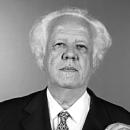
Pope Francis for Dummies
MÁS EN ESTA SECCIÓN
I’m going to say this straight out: I haven’t been this hopeful about Catholicism in a long time.
I’m a cradle Catholic who wholly left the faith, then returned to it after my mother’s death and, almost inconceivably, was submerged in the faith again in a newly intimate way when I took a job with an archdiocesan newspaper. I was a member of the Catholic Press for nearly a decade, during which time I saw the best and the worst of the Church as I wrote about and edited stories about lay people, religious men and women, bishops, cardinals, and two popes.
I learned to refer to the popes whose doings we covered as JPII and B16, with an economy born of admixed love and snark, pride and disappointment. Their failures were huge — the clergy sexual abuse scandal was made exponentially more scandalous through their inattention and deliberate obfuscation, for example — still, it was impossible for me not to love the sight of the aged John Paul II bobbing his head to the beat of pop music performed for him by enthusiastic young adults, or the fact that Benedict XVI was really fond of cats and traipsed around the world in red shoes I thought both spiffy and goofy (two of my favorite qualities).
JPII was the rock star of ordinary Catholics all over the world; B16 the academic respected by Catholics whose preferred waters are the depths of Catholic thinking. Both were — and continue to be — beloved and revered by many Catholics, but particularly those who in JPII’s time defined themselves as Catholic neo-cons.
Catholicism, in its ideal, isn’t supposed to define itself in secular political terms — but flesh-and-blood Catholics do it without cease. “Liberal” Catholics groove to the Church’s rejection of the death penalty, its advocacy for immigrants, its focus on helping and serving the poor; “conservative” Catholics groove to the Church’s advocacy for the unborn and the way it helps and serves vulnerable populations like the disabled and the elderly. When each camp is playing nice with each other, we recognize all of these “issues” draw from the same wellspring of compassion and love. When we’re not playing nice, we call each other nasty names and pull out the “authenticity” trump card to set against each other.
That authenticity card is increasingly being played against Pope Francis.
So much so, in fact, that in comments on Breitbart and other conservative sites some Catholics have taken to calling him the “anti-pope.” Others have made haste to label his radical-seeming inclusivity the work of “the devil.” From washing the feet of a Muslim woman at the Mass of the Lord's Supper on Holy Thursday to his removal of the mercenary “Bishop Bling” to comments and language that has given gay and divorced Catholics hope that they might find true welcome in the Church, Pope Francis has confounded convention and erased lines drawn in sand.
I count myself among those who love him for it. I find in his inclusivity a rebuttal to B16‘s earlier effort to winnow us away until only a “smaller, purer Catholic Church” remained. I am sure there are sophisticated theological rationales to support Benedicts‘s gated-community approach (because otherwise why would Pope Francis’ high-profile critics keep returning to it with the kind of desperation of those who are holding onto a lifesaver amid tumultuous seas?). But for me — the most ordinary of Catholics — the current Holy Father's approach seems, without question, the simpler and more authentic one.
Yup, I just pulled the authenticity card.
But think about it ... had Christ wanted smaller and purer, He would have gone no further than preaching to the 12 apostles, and they would have been tasked with nothing more challenging than spending their years in perfect, insular, agreement with each other.
As Catholics, the reminder that we’re called to radical inclusivity is in the building blocks of the word we choose to describe ourselves — the Greek word katholikos means universal, and is formed from root words that signify with respect to the whole. While those who consider themselves part of the “smaller, purer” core of Catholicism fulminate against him, Pope Francis takes us back to where we were supposed to be in the first place.
Non-Catholics, even the more usually cynical and critical secular media, have been able to see this. What really demands explanation is why some Catholics haven't, and can't. Perhaps if a real "Pope Francis for Dummies" book were published in Latin?






DEJE UN COMENTARIO:
¡Únete a la discusión! Deja un comentario.